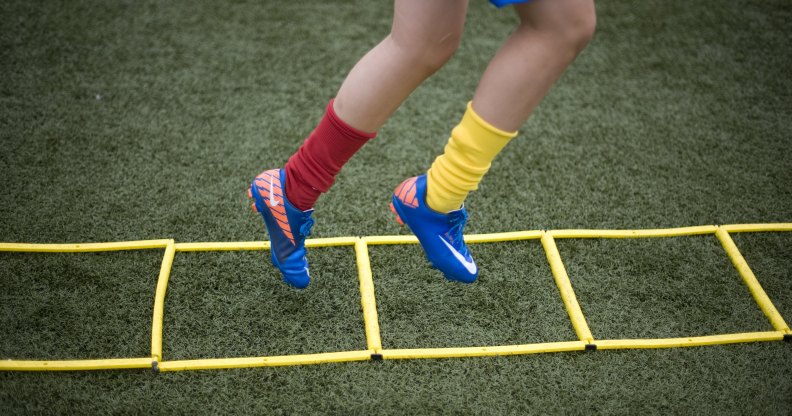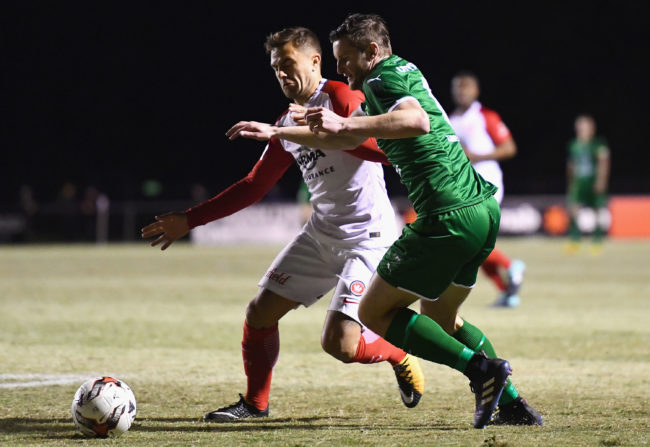90% of LGBT people say homophobia in sport is a problem, EU survey says

Homophobia in sport is a problem said 90 percent of LGBT+ people. (BARBARA SAX/AFP/Getty)
Nine out of 10 LGBT+ people said that homophobia and transphobia in sport is a problem, according to and EU-wide report.
The EU-funded Outsport project, which aims to address homophobia and transphobia in sport, surveyed 5,500 LGBT+ people between 16 and 78 years of age living across all 28 EU member countries for the report, titled The Relevance of Sexual Orientation and Gender Identity in Sport in Europe.
Professor Ilse Hartmann-Tews, head of research at Outsport, said: “There is a lack of evidence about the situation and experiences of LGBTI people in sport in Europe. For this reason, we conducted an EU-wide survey to investigate their diverse experiences in a wider context.”
Nearly one in two trans women reported experiencing homophobia in sport in the last year
Of the participants who were currently active in a sport, 16 percent of them reported a negative experiences in the last 12 months linked to their sexual orientation or gender identity.
This figure jumps to 46 percent in the case of trans women.
These negative experiences most commonly involved verbal insults or slurs (82 percent), discrimination (75 percent) or verbal threats (45 percent).
“Our results give evidence that sporting cultures must become more diverse.”
— Professor Ilse Hartmann-Tews
One in five respondents also reported experiencing physical violence in the last year.
In 49 percent of the cases involving negative experiences, the perpetrators of abuse or discrimination were the victims’ own team members, while in another 36 percent of the cases the abuse came from members of an opposing team.

Australian footballer Andy Brennan (R) came out as gay in May 2019. (Quinn Rooney/Getty)
In discussing ways to tackle homophobia and transphobia in sports, seven out of 10 respondents thought that famous sports stars coming out, as well as high-profile campaigns tackling discrimination, were helpful.
Head of research: “Sports must become more diverse”
The aim of the Outsport report is to address “homophobia, biphobia, transphobia, and interphobia—discrimination against an individual for being intersex—in sport through communication, awareness raising, training, scientific research, and by using sport itself as a tool.”
“We are proud of this work and we are sure that the results are fundamental for policies to combat anti-LGBTI attitudes in sport both at European and national level,” said Rosario Coco, Outsport coordinator.

